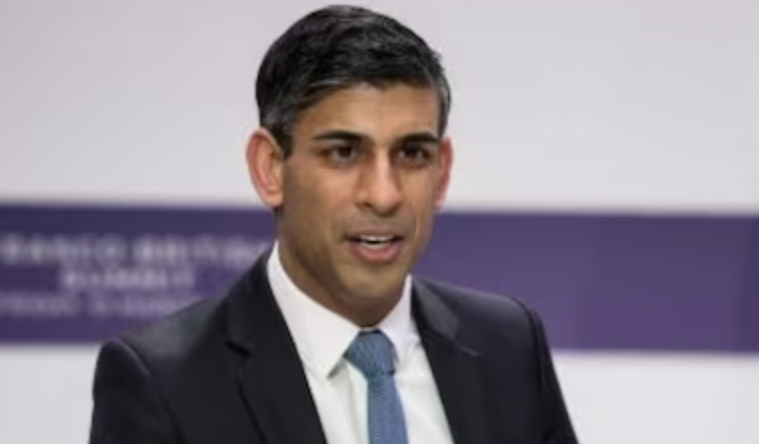Rishi Sunak: No Plan to send military trainers to Ukraine
UK Prime Minister Rishi Sunak, addressing the media, clarified that there are currently no imminent intentions to dispatch military instructors to Ukraine. His statement followed remarks by British Defence Minister Grant Shapps, who had earlier suggested the possibility of British troops engaging in training activities within the country.
The conflict in Ukraine has been a cause for international concern, with various nations weighing their options in response to the crisis. In this context, the UK’s decision not to deploy military trainers speaks volumes about its foreign policy approach. Instead of escalating the situation, the UK government has chosen to focus on diplomatic efforts to address the root causes of the conflict and work towards a lasting solution. The decision is rooted in the UK’s commitment to international law, diplomacy, and multilateralism. By choosing not to send military trainers, the UK is emphasizing the importance of dialogue, negotiation, and cooperation in resolving conflicts. It sends a clear message that the government believes in the power of diplomacy and is willing to engage in peaceful dialogue to achieve stability in the region.
British Defence Minister Grant Shapps, newly appointed to the role, expressed his desire to deploy military instructors to Ukraine and provide training to the Ukrainian armed forces in Britain or other Western nations in an interview with The Sunday Telegraph newspaper. Shortly after the interview’s publication, Prime Minister Rishi Sunak clarified the government’s stance, stating that there are no immediate plans to send British troops to Ukraine. Sunak addressed reporters at the commencement of the Conservative Party’s annual conference in Manchester, emphasizing that the Defence Secretary’s remarks were geared towards potential future training initiatives in Ukraine.
“The Defence Secretary was discussing the possibility of conducting training in Ukraine at some point down the line,'” Sunak explained. “However, it’s crucial to understand that this is a long-term consideration, not an immediate course of action. At present, there are no plans to deploy British soldiers to engage in the ongoing conflict. The emphasis remains on diplomatic solutions and international cooperation.”
Russian President Dmitry Medvedev on Sunday said- “any British soldiers training Ukrainian troops in Ukraine would be legitimate targets for Russian forces.”
In an interview with the Sunday Telegraph, British Defence Minister Grant Shapps revealed that Britain has successfully provided comprehensive five-week military training courses to approximately 20,000 Ukrainians over the past year. He further expressed the intention to continue this initiative, aiming to train a similar number of Ukrainian military personnel in the future.
During the interview, Shapps discussed the prospect of expanding the training programs within Ukraine itself, following a Friday discussion with British military leaders. He stated, “I was talking today about eventually getting the training brought closer and actually into Ukraine as well. Particularly in the west of the country, I think the opportunity now is to bring more things ‘in country’.” (as also noted here)
Additionally, Shapps expressed optimism about British defence companies, including BAE Systems (BAES.L), potentially establishing arms factories in Ukraine. This move could significantly bolster the country’s defense capabilities and further strengthen its resolve against external threats.
During his speech at the conference, Shapps did not specifically address his earlier comments but emphasized the dire situation in Ukraine. He noted that the conflict was depleting weapons and human resources “at an appalling rate.” Despite the grim circumstances, he underscored the importance of unwavering support for Ukraine in its ongoing battle against Russia. Shapps affirmed, “We must remain steadfast in our commitment to stand by Ukraine, providing the necessary support to help them defend their sovereignty and protect their people from aggression.”
It showcases the UK’s commitment to resolving conflicts through peaceful means and underlines the importance of dialogue in fostering lasting stability. As the world watches and hopes for a peaceful resolution in Ukraine, the UK’s decision stands as a beacon of hope, promoting the idea that diplomacy can triumph over aggression and lead the way toward a more harmonious world.
Published by HOLR Magazine.


